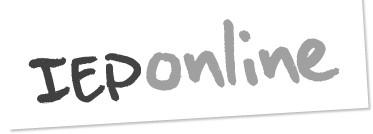Vision, policy, and principles
The context for individual education planning

Success for All – Every School, Every Child (2010) (PDF, 1.1MB)
Sets out the government’s vision of a fully inclusive education system by 2014. Confident schools, students, parents/caregivers, whānau, and communities are at the heart of this vision. The IEP process needs to support this goal.
Policy: the National Administration Guidelines
National Administration Guidelines (NAGs) previously provided the policy framework for IEPs.
On 1 January 2023, the National Education Goals (NEGs) and the National Administration Guidelines (NAGs) ceased to have effect.
Most requirements from the NEGs and NAGs have shifted into:
- the Education and Training Act 2020
- new regulations
- the National Education and Learning Priorities (NELP)
- the National Curriculum (some of which will happen through the refresh).
More information - National Education Goals (NEGs) and National Administration Guidelines (NAGs)
Principles

The principles that inform IEP processes apply to all teaching and learning; all teaching and learning occurs within the New Zealand Curriculum and Te Marautanga o Aotearoa.
- The student is recognised as an active, capable learner. IEPs are a way of adapting the school programme to fit the student rather than expecting the student to fit the school programme.
- The special education needs of many students can be met by class- and school-wide strategies. Only some students with special education needs require an IEP, and few need one that captures every aspect of their learning.
- Collaborative decision making is at the heart of supporting all students with special education needs. The student and their classmates, parents/caregivers, whānau, and communities are supported to be active participants in the IEP team and process. All educators involved in a student’s learning are included.
- Student engagement, learning, and achievement depend on the relationship between the teacher and student.
- Language, identity, and culture count. Knowing where learners come from, and building on what they bring with them, is essential.
- Teachers draw on a range of effective assessment approaches, using the principles of assessment for learning. They use overall teacher judgments (OTJs) to inform teaching and learning programmes for all students.
“Language, identity and culture count – knowing, respecting and valuing who students are, where they come from and building on what they bring with them.” Ka Hikitia, 2009

